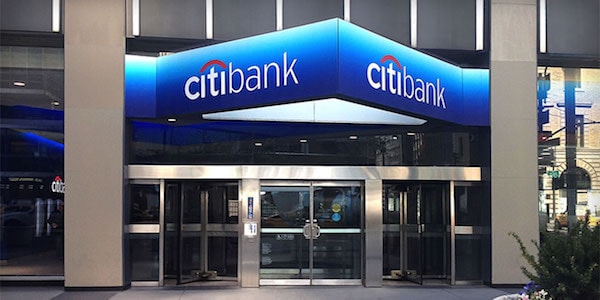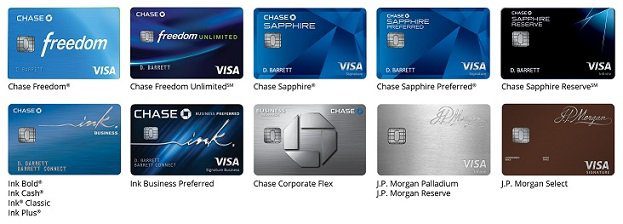When applying for credit cards, it’s important to know the rules that you’ll need to follow for each bank because they’re all different. Knowing these rules will allow you to continue to get approved for cards and collect the bonuses that will add to your balances. That, in turn, will allow you to meet your travel goals.
As always, you shouldn’t be bothering with this if you have credit card debt. If that’s the case, your main goal should be to pay off the debt and increase your credit score, and THEN you can start applying for credit cards.
I’m going to stick to the “major” banks that issue reward cards (American Express, Citibank, Chase, Capital One and Barclays) because they are the ones you’ll be dealing with most of the time.
*Cards in this article may give us a referral bonus if you sign up with the provided links. We do not recommend or endorse any particular bank or card and no bank has influenced this article in any way.
American Express
American Express, or AMEX for short, has one of the easiest rules to understand when it comes to applying for their credit cards. If you currently have or have EVER had that particular card before, then you are most likely NOT eligible for a signup bonus again. There are some rare exceptions to this rule but assume that if you have ever possessed a particular AMEX card before, you will not ever get a bonus for that type of card again. There is NO TIME LIMIT on this rule.

OK, so how about some good news? You’re able to get a bonus for each specific card. So you can get the bonus for both the Gold Card and the Platinum Card. If you’re able to sign up for a business card (and if you have any side business, you just might be), you’re also able to get a signup bonus on both the Business Gold Card and the Business Platinum Card. That’s not to forget the bonuses available when you signup for the AMEX Everyday cards and the AMEX Blue cards.
The same rules go for the AMEX co-branded cards (Delta, Starwood, and Hilton). You can only get one signup bonus per card, but each different card is eligible.
When you apply for an American Express card, there’s a pop-up box that will inform you if you’re not eligible for a signup bonus. That’s a nice thing for them to do but the system’s not perfect so it’s up to you to keep track if you’ve had a card before or not.
So while AMEX does limit you to one bonus per card, they do have a large number of cards to choose from. If you’re new to this, it will take you quite a while to work through all the cards. I’m still not even close to being complete and I’ve been doing this for YEARS.
Lastly, AMEX does limit you to having five of their credit cards (personal or business) open at the same time. These are any cards except the Green, Gold and Platinum cards, which are charge cards (and yep,there’s a difference).
Citibank
Citibank (or Citi for short) offers both its own cards that earn ThankYou Points and issues co-brand cards for American Airlines and Expedia.

Citibank has also placed some rules into effect about earning bonuses for their credit cards. While they’re more lenient than AMEX’s rule, they are also far more confusing.
When signing up for a card that earns ThankYou points (like the Premier, Rewards+ or the Prestige), here’s the disclaimer:
Bonus ThankYou Points are not available if you received a new cardmember bonus for Citi Rewards+, Citi ThankYou Preferred, Citi ThankYou Premier/Citi Premier or Citi Prestige, or if you have closed any of these accounts, in the past 24 months.
To clarify, Citi will only allow you to get a bonus if you’ve not opened OR CLOSED any card in the same product family in at least 24 months. In practice, this means that once you have a Citi card and have kept it for 2 years, you can apply for another one in the same line (Premier, Rewards+). However, if you were to cancel that card, the clock would reset for another 2 years. So if you have a Citi card, it makes sense to hold onto it for 2 years, apply for another card that earns the same points and then, if you want, you can cancel the original one. Seems silly but it does keep people from signing up for the bonus and then canceling after the first year.
The same goes for Citi cards that earn American Airlines miles. Like AMEX, the business versions of the cards don’t count towards the limits so you can get a business and personal card and get the signup bonus on both.
The other restriction Citi has in place is how often you can apply for a card. You can only apply for one personal card every eight days and no more than two cards in sixty-five days. For business cards, you can only apply for one card every 95 days.
Chase
Chase was once the darling of the rewards credit card universe. Not only did they have several cards like the Sapphire Reserve and Preferred personal cards and the Ink Preferred business card that earned valuable Ultimate Rewards points, but they also had co-brand cards with varied partners like Hyatt, IHG, Marriott, Ritz-Carlton, United, Southwest, British Airways, Disney and Amazon.com.

At the end of 2016, Chase dropped a bombshell on the points world when they instituted what has become known as the “5/24 rule“. Essentially, this rule says you will not be approved for a Chase card if you have opened five or more bank cards in the last 24 months. This rule, which is being followed very stringently, put many desirable Chase cards out of reach for many people, including me.
There’s still debate about which cards Chase will count towards your five-card limit (Do business cards count? What about if you’re only an authorized user on someone else’s card?) There are conflicting data points on each of these so it does pay to be prudent with which cards you apply for before going out and chasing every bonus announced.
It appears that this restriction is in place for all Chase cards but this can’t be confirmed as Chase does not comment on the 5/24 rule.
Chase also limits how often you can get a sign-up bonus. For most cards, you’re not eligible for a sign-up bonus if you currently hold the card or received a bonus within the past 24 months. An exception to this rule is the Sapphire cards. You can only hold one of the cards in the family at a time and only can receive a bonus every 48 months.
Barclays
Barclays, the issuer of the cards for JetBlue, American Airlines and their own Arrival cards (among others) is generally difficult to get any card from. While there are some data points about card sign-up rules, there’s little consistency in the enforcement of the rules.
They may have a 6/24 rule similar to Chase’s restriction on recent card applications. I’ve personally found it was easier to get approved for a second card with a higher credit limit once I was approved for the first one.
Capital One
There’s more interest in Capital One since they added the ability to transfer points to airline and hotel programs and offered some great bonuses for the Venture X and Spark business cards. Unfortunately, when it comes to rules for applying for a new card from Capital One, there are no set guidelines. To make things more confusing, the previous guidance about applications doesn’t seem to apply to the Venture X as many people who were denied Capital One cards before were approved for this new card.
Other Banks
That’s just the main banks. The other issuers, like Bank of America, US Bank, Discover each has their own rules as well but if you can remember the Big Five, you’re well on your way to getting to your travel goals.
Want to comment on this post? Great! Read this first to help ensure it gets approved.
Want to sponsor a post, write something for Your Mileage May Vary or put ads on our site? Click here for more info.
Like this post? Please share it! We have plenty more just like it and would love it if you decided to hang around and sign up to get emailed notifications of when we post.
Whether you’ve read our articles before or this is the first time you’re stopping by, we’re really glad you’re here and hope you come back to visit again!
This post first appeared on Your Mileage May Vary

2 comments
[…] talked more about this in my recent article, The confusing rules when applying for reward credit cards. Once you’ve been doing this for a while, there are offers out there that you just […]
[…] the different rules that each bank has when you apply for their reward credit cards. […]